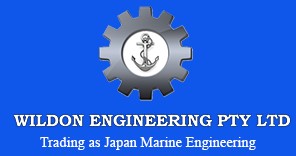Causes of Marine Diesel Engine Overload
Blog | April 8th, 2022
Boats can only move in water if their marine diesel engines are in great shape. Marine diesel engines convert heat from burning fuel into the needed power of these things. Most mechanical energy inside these marine vessels comes from the engines since they carry out the combustion process.
Given the purpose of marine diesel engines, they are expected to work for a long time as long as the boats are in the waters. Now, even though some boat operators have enough experience in operating these marine vessels, they can still overload the engine of the boats. Of course, those without any prior experience may have a higher chance of overloading their boats’ engines.
Understanding Diesel Engine Load
An engine works by processing the fuel to generate enough energy for the boat. As the engine produces the power needed by the marine vessel, it simultaneously receives a diesel engine load. The diesel engine load is the torque provided to the engine, which can help in regulating its overall strength.
The combination of the energy and the load then allows the marine vessel to speed up or slow down. A boat decreases in speed as its engine load increases. Alternatively, a marine vessel will speed up if the load becomes smaller. However, if the engine load exceeds the applied power, the engine will overload. A boat with an overloaded engine can have difficulties in achieving its specified revolutions per minute. Worse, it may generate more issues that can be costly to resolve.
Main Causes of Overloaded Engines
An engine can overload due to three reasons.
- Hydrodynamic Drag: Hydrodynamic drag is the friction of the marine vessel from the water. Some elements that could affect the hydrodynamic drag of a boat are hull type, cleanliness of the boat bottom, underwater gear type, loaded weight of the vessel, and sea conditions. A boat that experiences high hydrodynamic drag may eventually overload its engine.
- Gearbox Ratio: The engine load may be affected by the gearbox ratio. After all, a reduction gearbox intends to reduce the output speed of an engine. If the gearbox ratio does not meet the RPM requirements of the engine, then it will only overload the engine.
- Propeller Installation: A propeller that is either too large or has too much pitch can affect the engine performance. Without considering its specifications, the propeller can easily overload the engine.
Resolving Marine Engine Overload
Failure to address the overloading of marine engines may lead to slow acceleration, overheating, excessive black smoke emission, increased fuel consumption, and reduced engine service life. As the performance levels of the engine increase, the chances of getting into trouble become higher.
One recommended way to resolve and prevent overloaded marine engines is to consult with a marine engine service company. Experts in marine engines can assess the condition of the marine vessel and its engine. They can also check the cooling system and clean the filters, propellers, and underwater gear.
If you have some questions about marine engines, you can contact us at Wildon Engineering.
Optimized by NetwizardSEO.com.au
Recent Posts
- Marine Anchor and Chain: Innovations in Anchor Technology for Modern Vessels
- Marine Supplies and Dry Docking: How Japan Marine Spares Improve Efficiency
- Marine Deck Cranes & Machinery Supply from Japan Marine Engineering: Navigating the Global Market in 2024
- Marine Diesel Turbochargers: New Equipment and Spares from Japan Marine Engineering
- KEMEL Stern Tube Seals: Amplifying Engine Propulsion and Propeller Shaft Longevity
- Mitsubishi Selfjectors: The Cutting-Edge Oil Purifiers for Marine Vessels
- Marine Vessel Spare Parts: Australian Global Supplier for Shipping Industries
- Yanmar Fuel Injection Valves: The Power of Precision in Marine Engine Performance
- Why Yanmar Fuel Injection Pumps are the Reliable Choice for Your Engines
- Yanmar Diesel Engine Maintenance: Advantages of Using Genuine Yanmar Parts and Fluids
